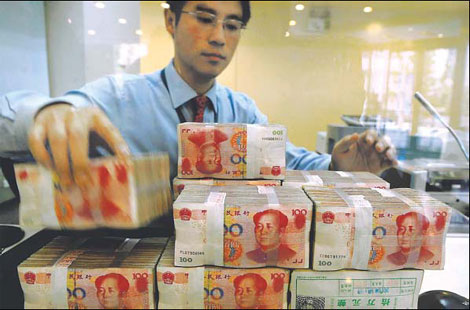Foreign capital gets favorable playing field
By Han Qi (China Daily) Updated: 2013-12-03 08:14The Decision on Major Issues Concerning Comprehensively Deepening Reforms, issued by the Third Plenary Session of the 18th Communist Party of China Central Committee on Nov 15, is the new Chinese leadership's first comprehensive economic road map for the country.
The number of foreign enterprises investing in China has grown continuously since reform and opening-up were introduced 35 years ago. By the end of 2011, there were 446,487 foreign-funded enterprises in China, and from 1979 to 2012, utilized foreign investment in China totaled $1.28 trillion.

File Photo / Reuters
Since China has become the world's second-largest economy and holds the largest foreign exchange reserves, the foreign investment policy whose aim is to meet the capital shortage has to be changed. China has already issued common income tax laws for domestic and foreign-funded enterprises, and is gradually canceling the favorable treatment granted to foreign capital. This means the environment for foreign investment in China has reached a relatively mature stage and the country is confident of using foreign investments rationally. It definitely doesn't mean, as some Westerners allege, that the foreign investment environment is deteriorating.
Moreover, China remains committed to improving the foreign investment policy and environment. Article 24 of the document issued by the plenum clearly says foreign investment will have wider access; domestic and foreign laws and regulations will be unified; and the foreign investment policy will be stable, transparent and predictable.
Article 9 of the document says fair, open and transparent market rules will be passed and a unified system for entry into the market will be introduced. This will allow all kinds of market-players equal access to areas that are not on the "negative list".
The Guidance Catalogue of Foreign Investment Industries elucidates the "positive list", or areas foreign investment can enter, and the "negative list", or fields off bounds for foreign investment. Except the areas on the "negative list", all industries and economic activities are open to foreign investment, which should be welcomed by foreign companies eager to expand or do business in China.











